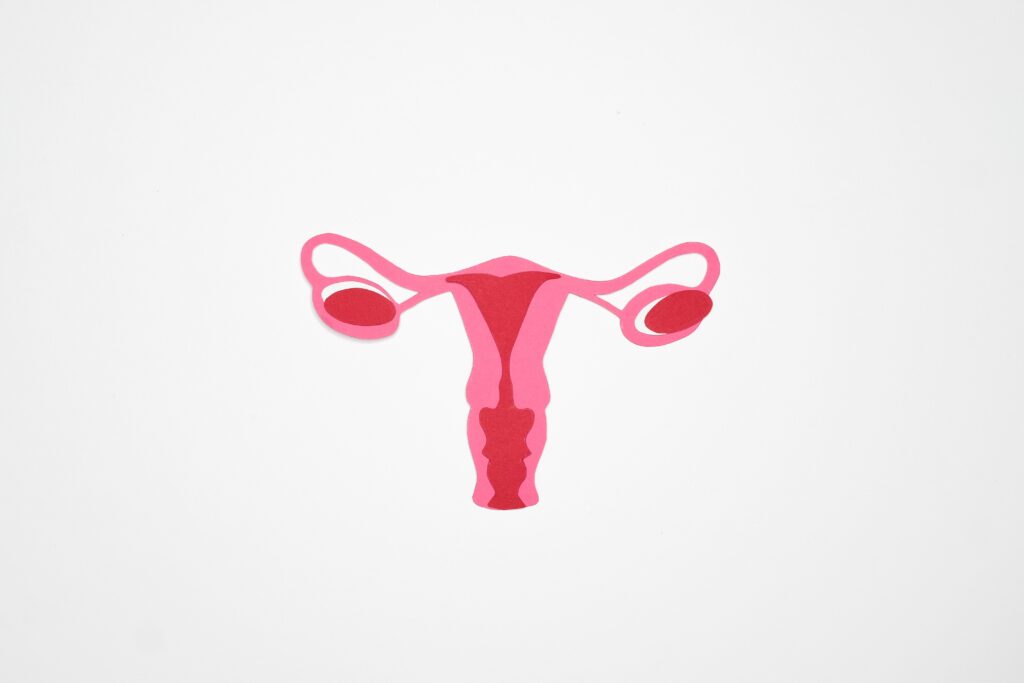Polycystic Ovary Syndrome, or PCOS, is a complex condition that affects many women. It can have a serious impact on a woman’s fertility, body composition, and overall health. Women who are diagnosed with PCOS often experience multiple symptoms, including irregular periods, excessive facial and body hair, acne, and weight gain.
Fortunately, there are treatments available that can help manage the symptoms and improve a woman’s quality of life. This guide offers a comprehensive overview of PCOS, from understanding the condition and its causes to diagnosing it and exploring treatment options. Whether you are a woman with PCOS, a healthcare provider, or just looking for more information, this guide will help you learn more about this condition and the resources available to help.
What is PCOS?
PCOS stands for polycystic ovary syndrome. It is a condition that affects many women, although many women may not know that they have it. PCOS is a condition in which the ovaries appear to be cystic (enlarged and fluid-filled), and there are often small amounts of male hormones (androgens) in the blood. It is these androgen hormones that make a woman more “manly” by increasing facial and body hair, acne, and weight gain.
Women with PCOS are at an increased risk of developing Type 2 Diabetes and heart disease. The exact cause of PCOS is not known, but it is likely that a number of factors play a role, including genetics, weight and diet, and insulin resistance (when the body cannot use sugar properly). There is no cure for PCOS, but there are treatments available that can help manage the symptoms and improve a woman’s quality of life.
Symptoms of PCOS
While some women with PCOS have no symptoms, others may experience a wide range of symptoms, including irregular periods, excessive facial and body hair, acne, and weight gain. Other symptoms that may be present include mood changes, decreased fertility, and sleep apnea.
Irregular periods – Some women with PCOS have extremely irregular periods, while others may have regular periods with just a longer cycle of 35 to 40 days.
Excessive facial and body hair – While many women experience some facial hair as they get older, women with PCOS tend to have more facial and body hair, including on their upper arms. This hair growth can happen at a younger age compared to women who do not have PCOS.
Acne – While most people associate acne with teenagers, women with PCOS are more likely to develop acne as adults than women without PCOS.
Weight gain – Many women with PCOS experience weight gain, especially around the midsection. This can make it difficult to lose weight and maintain a healthy body weight.

Diagnosing PCOS
If you visit your doctor and you experience any of the above symptoms, you may be diagnosed with PCOS. However, not all women with these symptoms have PCOS. Your doctor may conduct a few tests to make a diagnosis, including a blood test to measure blood sugar levels and androgen levels, and a pelvic exam to assess your ovaries and your uterus.
If you have PCOS, your ovaries will likely be enlarged and contain small amounts of fluid, which your doctor can see by ultrasound. If you are experiencing very irregular periods, pelvic pain, or other menstrual irregularities, you may be diagnosed with PCOS and need to be evaluated for other conditions such as endometriosis or uterine fibroids.
Causes of PCOS
The exact cause of PCOS is unknown. However, experts believe it may be caused by a combination of genetics, weight and diet, and insulin resistance.
Genetics – Having a family history of PCOS may increase your risk of developing the condition.
Weight and diet – Women who are overweight or obese are more likely to develop PCOS. It is possible that being overweight may cause PCOS, or it could be due to an increase in insulin production in overweight individuals.
Insulin resistance – Women who are insulin resistant are more likely to develop PCOS. Although not everyone who has insulin resistance has PCOS, most women with PCOS also have insulin resistance.
Risk factors for PCOS
Several risk factors have been identified for PCOS, including genetics, weight, diet, and insulin resistance. PCOS is more common among women who have a family history of the condition, and women who are overweight or obese are at a higher risk of developing PCOS.
Additionally, if you have insulin resistance, you may be at a higher risk of developing PCOS. Insulin resistance occurs when the body’s cells cannot use sugar properly, which can lead to high blood sugar levels and an increased risk of Type 2 Diabetes.
Impact of PCOS on fertility and pregnancy
If you have PCOS, you may experience fertility issues. This can be a challenging aspect of PCOS, especially if you would like to become pregnant. If you have PCOS and you become pregnant, you may have an increased risk of complications, including preeclampsia, gestational diabetes, and preterm labour.
The good news is that there are various treatments available to help with fertility issues, such as taking special vitamins, losing weight, and taking medications like letrozole or clomiphene. It is important to note that if you have PCOS and you become pregnant, you have a slightly higher chance of having a baby with an abnormality.
This means that it is important to see your doctor as soon as you know you are pregnant to get the right prenatal care.

Diet and lifestyle changes for PCOS
If you are diagnosed with PCOS, it is important to meet with a healthcare provider and a dietitian who can help you design a healthy lifestyle and diet to manage your PCOS symptoms and reduce your risk of complications. In addition to seeing a specialist, here are a few lifestyle changes that may help:
– Reduce your intake of processed foods, trans fats, and refined carbohydrates. Instead, choose whole foods like fruits, vegetables, and whole grains.
– Get regular physical activity. Researchers have found that regular physical activity can reduce symptoms of PCOS and may even help to improve fertility in women with PCOS.
– Manage your stress levels. Stress can worsen many PCOS symptoms, including irregular periods and increased body and facial hair.
PCOS and Exercise
Exercise can have many benefits for women with PCOS, including helping regulate menstrual cycles, improving overall health and mood, and promoting weight loss. Exercisers with PCOS may want to choose workouts that focus on weight training, using low weights and higher repetition.
This type of workout can help improve muscle tone and help reduce body fat. When exercising, it’s important to eat a healthy diet and stay hydrated by drinking plenty of water. Exercising while on a PCOS diet can help prevent weight gain.
PCOS and Diet
While it is not necessary to follow a particular diet as part of treatment for PCOS, some experts believe that certain diets can help manage certain symptoms. For example, a low-glycemic diet may help regulate menstrual cycles in women with PCOS who have a history of irregular periods.
A low-carbohydrate diet may help with weight loss in women with PCOS who are struggling with extra weight. It’s important to follow the diet that works best for you and your personal health goals, and to consult your doctor before making any dietary changes.
PCOS and Fertility
Women with PCOS may experience complications with fertility. While there isn’t one particular treatment that works for everyone, a doctor may recommend certain steps to help improve fertility. These may include taking metformin, losing weight, and stopping smoking. There are also a few natural fertility treatments that may help.
One of the most common treatments is called PCOS-specific acupuncture. PCOS-specific acupuncture is a type of acupuncture that has been found to help regulate ovulation and increase pregnancy rates in women with PCOS who are trying to conceive.
Treatment options for PCOS
If the symptoms associated with PCOS are bothering you, your healthcare provider may recommend treatment. Treatment for PCOS can help reduce symptoms and improve quality of life. Some common treatments for PCOS include:
Birth control: Birth control can help regulate menstrual cycles in women with PCOS who have irregular periods.
Metformin: Metformin may help improve fertility in women with PCOS who are trying to conceive.
Acne medications: Topical or oral acne medications can be prescribed to help reduce acne symptoms.
Antidepressants: Depression and anxiety are common in women with PCOS, so antidepressants may be prescribed if needed.
Hormonal IUD: An IUD can be a great option for women with PCOS who are trying to conceive and want to prevent an unplanned pregnancy.
Questions to Ask Your Doctor about PCOS
If you are diagnosed with PCOS, it is important to see a healthcare provider regularly to monitor your symptoms, get treatment if necessary, and discuss what lifestyle changes you can make to improve your overall PCOS symptoms. Here are a few questions to ask your doctor about PCOS:
– What is the best way to manage my PCOS?
– What lifestyle changes can I make to improve my PCOS symptoms?
– Should I be taking any medications or vitamins?
– What is my risk of long-term complications?
– The risk of getting other diseases
– What is the best way to conceive a child?
– The long-term outcomes of having PCOS
Managing PCOS in the long term
If you have PCOS, you may be able to manage your symptoms and reduce your risk of complications by making a few lifestyle changes. These can include:
– Maintaining a healthy weight – Excess weight can worsen many PCOS symptoms, including irregular periods and facial and body hair. This can make it difficult to conceive a child.
– Managing stress – Stress can worsen many PCOS symptoms, including irregular periods and acne.
– Getting regular physical activity – Regular physical activity can reduce PCOS symptoms and help improve fertility in women with PCOS.
Natural remedies for PCOS
While there are many benefits to making healthy lifestyle changes and taking medication, you may want to explore natural remedies for PCOS as well. Here are a few natural remedies for PCOS:
– Aloe vera – Drinking aloe vera juice may help to improve menstrual symptoms and reduce excess hair growth.
– Green tea – Drinking green tea may improve insulin sensitivity and help to improve your overall health.
– Yoga – Practicing yoga can reduce stress and improve overall health.
– Acupuncture – Receiving regular acupuncture treatments may reduce your PCOS symptoms.

General Tips for Coping with PCOS
While there is no cure for PCOS and treatment options will vary from person to person, there are steps you can take to cope with the condition.
Follow a healthy diet: Eating a healthy diet can help reduce symptoms and promote overall health.
Exercise regularly: Regular exercise can help reduce symptoms and promote overall health.
Get enough sleep: Getting plenty of sleep can help reduce stress levels, regulate hormones, and promote overall health.
Stay hydrated: Drinking plenty of water throughout the day can help promote overall health.
Find support: There are many online communities and support groups available to help women with PCOS connect and learn from one another.
Summary
Polycystic ovary syndrome, or PCOS, is a complex condition that affects many women. It can have a serious impact on a woman’s fertility, body composition, and overall health. Women who are diagnosed with PCOS often experience multiple symptoms, including irregular periods, excessive facial and body hair, acne, and weight gain.
Fortunately, there are treatments available that can help manage the symptoms and improve a woman’s quality of life. This guide offers a comprehensive overview of PCOS, from understanding the condition and its causes to diagnosing it and exploring treatment options.